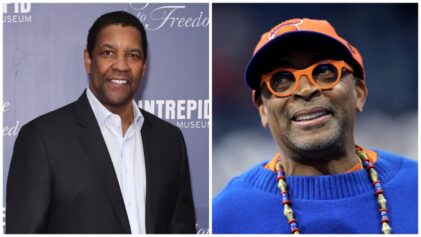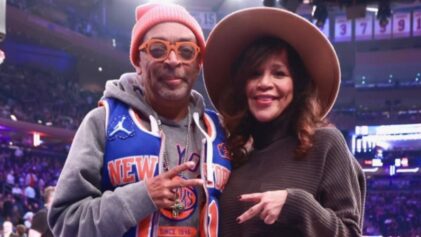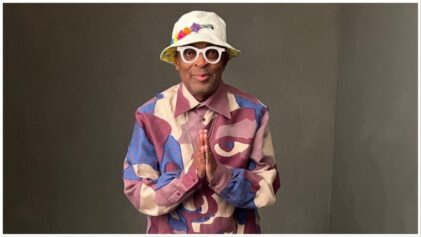The radioactive fallout continues to pile up in the wake of last Thursday’s lack of Black Oscar nominations. Jada Pinkett Smith and Spike Lee have stated their intent to neither attend nor watch this year’s Academy Awards. Lee’s absence will be hard to ignore; he received an honorary Oscar at the Academy’s Governor’s Ball last November. A package highlighting the event runs at some point during the telecast, and the awkwardness of Lee’s absence along with the critical remarks he made at the event will be akin to rubbing salt in a raw wound. The mushrooming effect of #OscarsSoWhite this year has encapsulated the entire film industry, and many people have weighed in.
BET founder Robert L. Johnson talked about a possible solution. He outlined four points in a press release:
- Increasing the number of voting members of the Academy by adding qualified minority individuals. The goal here is not to dilute an individual’s unique perspective as an Academy voter, whether they are diverse or not, but simply to increase diversity of voices and therefore choices.
- Engage the studios to encourage the casting of more African-Americans in films with black themes. For example, why were Gladiator, starring Russell Crowe, or Braveheart, starring Mel Gibson, both greenlit, but not films based on the true story of the African general Hannibal or the African chief and warrior Shaka Zulu?” If the answer is financial or there is a belief that there is a lack of cultural interest or identity in those stories, those issues need to be addressed with the studios.
- Improve casting of minority actors and actresses in roles outside of black-themed films. For example would films like Pretty Woman or Sleepless in Seattle [have] been less creative if the characters were interracial?”
- Encourage studio hiring of minorities in their creative and development departments, including executives with the power to greenlight films. (Johnson said such changes in television had resulted in a number of Emmy nominations for minorities.)
Last year, Academy President Cheryl Boone Isaacs invited 322 new members into the Academy Of Motion Picture Arts and Sciences, though its effects were not evident in this year’s batch of nominations.
Johnson’s next two points are harder to execute in a marketplace driven by franchises now more than ever. Therefore, movies with Black themes are more likely to be smaller and in need of independent financing. Men like Johnson and other Black business people will have to fill the financial void of these films.
Johnson’s last suggestion, however, is something that everyone from Spike Lee to Will Packer has said is the real key. There are not a lot of Black executives in positions of power to green-light films. More executive power in the hands of minorities helps get more diverse films financed and made, making Johnson’s second and third points possible.
#OscarsSoWhite is the brainchild of broadwayblack.com managing editor April Reign. She created it last year as a response to Ava DuVernay and David Oyelowo’s snub for Selma. This year, the hashtag has been sent into overdrive due to the overabundance of quality, black performances failing to gain recognition.
In her interview with The Hollywood Reporter, Reign stated, “I was disappointed but not surprised in the lack of nominations of people of color and those of marginalized communities. It’s unfortunate.”
She continued, “Although Academy president Cheryl Boone Isaacs has attempted to make some changes with respect to diversity by inviting over 300 new members into the Academy last year, those changes did not reflect a difference with respect to how films are nominated and how people are celebrated for their achievements.”
In his interview with The Hollywood Reporter, Oyelowo articulated why it is so important for black talent to be recognized at the Oscars.
“It is the zenith, it is the epitome, it is the height of celebration of artistic endeavor within the film-making community,” he said. “We grow up aspiring, dreaming, longing to be accepted into that august establishment because it is the height of excellence. I would like to walk away and say it doesn’t matter, but it does.”
It is grandest stage of the entire cinematic world. It’s supposed to be charged with showcasing the best in cinema from all over the world. And yet, when there’s no recognition of what’s going on in their own backyard, it’s like saying there’s nothing worthwhile happening in the world of black cinema.
George Clooney lamented to Variety, “If you think back 10 years ago, the Academy was doing a better job. Think about how many more African-Americans were nominated. I would also make the argument, I don’t think it’s a problem of who you’re picking as much as it is: How many options are available to minorities in film, particularly in quality films? All of a sudden, you feel like we’re moving in the wrong direction.”
Ten years ago, Jamie Foxx won Best Actor for Ray (2004), Morgan Freeman won Best Supporting Actor for Million Dollar Baby (2004), Forest Whitaker won Best Actor for The Last King of Scotland (2006), and Jennifer Hudson won Best Supporting Actress for Dreamgirls (2006). Talented actors and actresses like Terrence Howard, Don Cheadle, Sophie Okonedo, Eddie Murphy and Djimon Hounsou were nominated. Lupita Nyong’o, the last Black actress to win for Best Supporting Actress in 2013 for Twelve Years a Slave, said to the Hollywood Reporter that she “stands with my peers who are calling for change.”
Recognition of Black talent at a time when it’s peaking in ability and productivity is something welcomed and needed on the grandest stage of them all.



